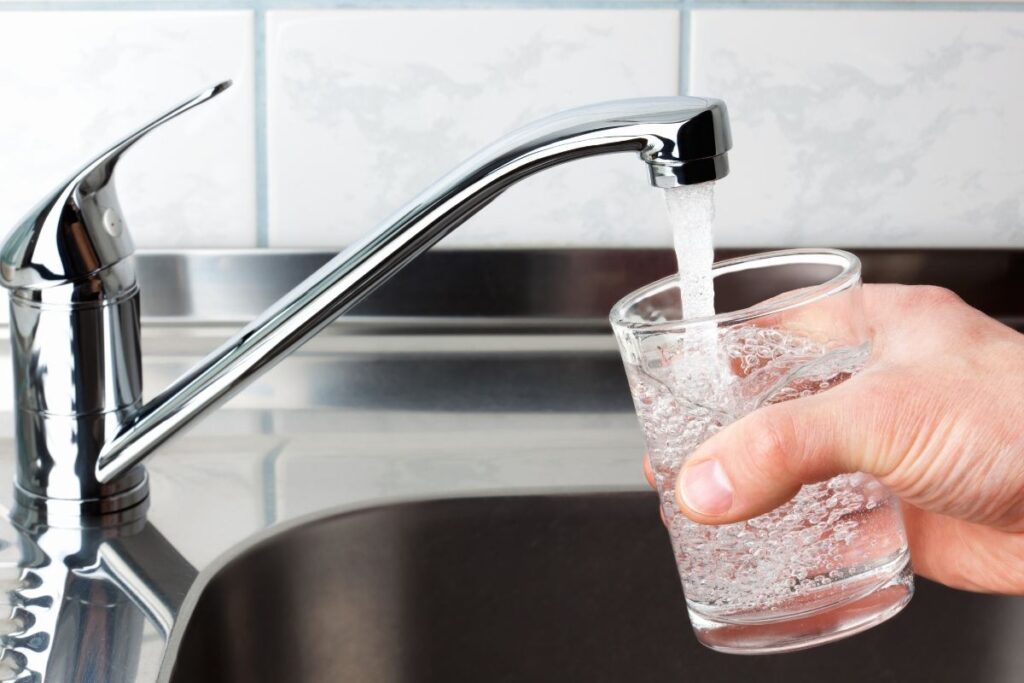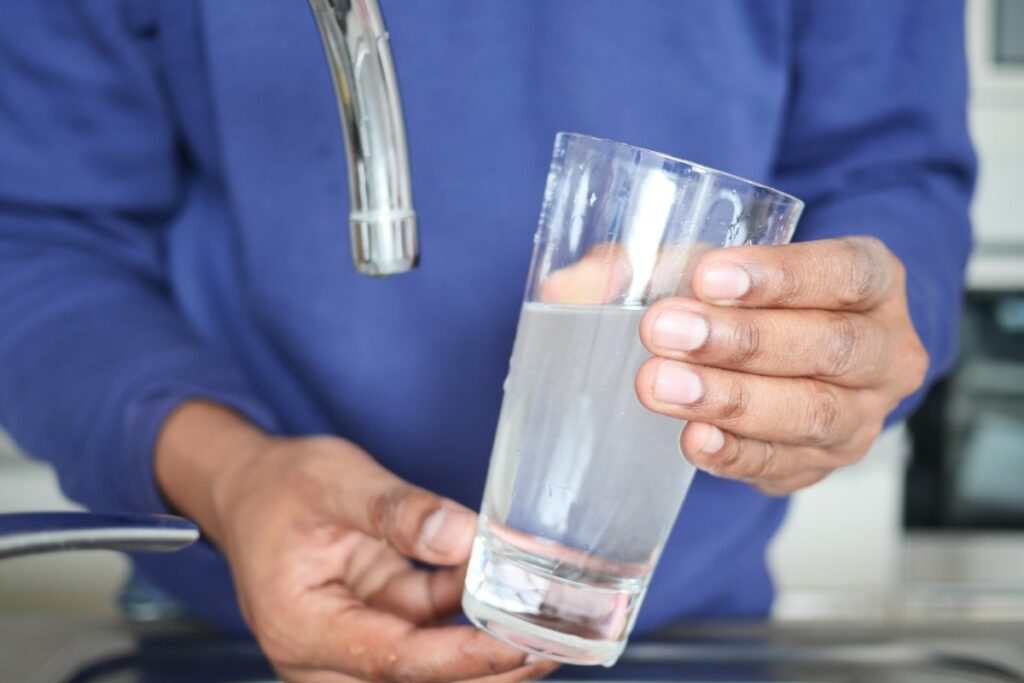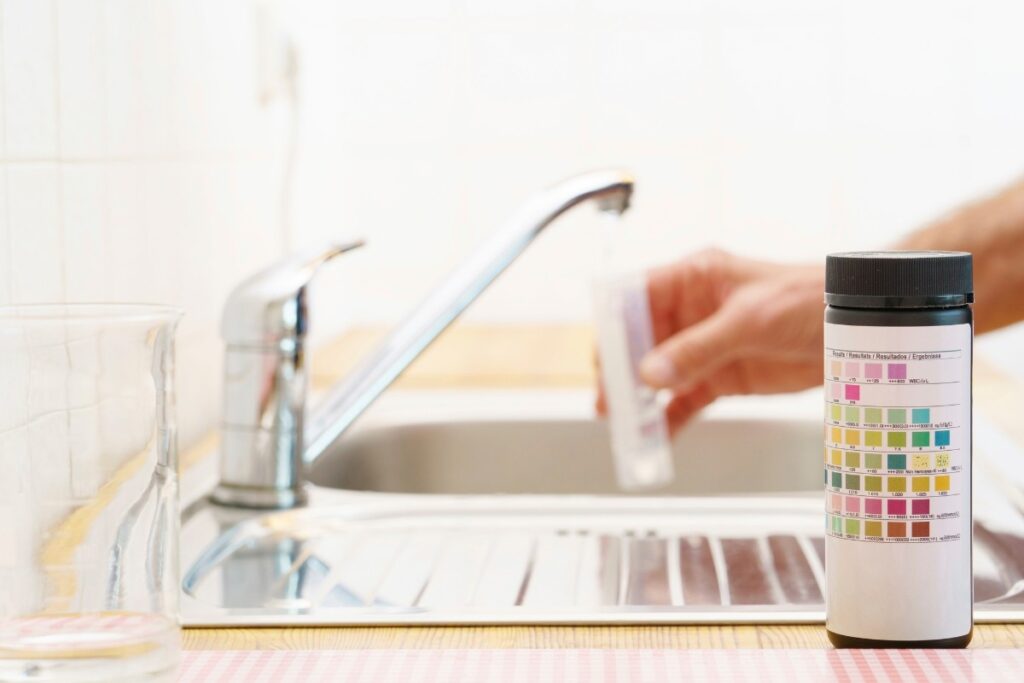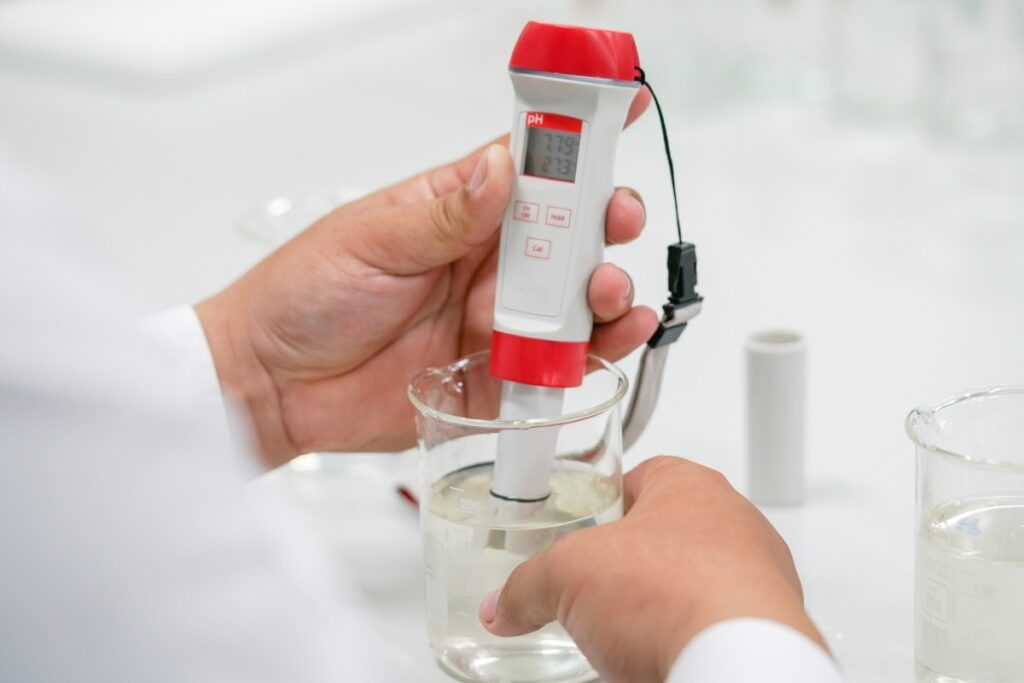
Did you know that over 90% of the world’s population has access to improved water sources, yet water contamination remains a serious concern even in developed areas?
Checking water quality at home is more important than ever. Contaminants like lead, bacteria, and other harmful substances can pose serious health risks for your family, making safe drinking water a critical priority.
In this post, we’ll guide you through practical, easy-to-follow methods for testing water quality at home. Here’s what you’ll learn:
- The benefits of regular water quality testing and common contaminants to be aware of.
- Simple observation techniques and DIY water tests to check water quality at home.
- How to use home water quality test kits and instruments effectively.
- The role of professional lab testing and its benefits.
- Steps to interpret test results and maintain safe water systems long-term.
By following this guide, you’ll gain the knowledge to safeguard your water supply and ensure your home remains a safe place for your family.
If you need professional assistance, contact Done Rite Services for expert water testing and filtration solutions in Tucson and Southern Arizona.
Table of Contents
The Importance of Testing Water Quality
Testing water quality at home is essential for protecting your family’s health. Harmful contaminants such as lead, nitrates, bacteria, and even emerging substances like PFAS can infiltrate your water supply.
These pose significant health risks ranging from developmental issues to gastrointestinal problems. Understanding the quality of your drinking water helps you address potential issues promptly, ensuring the water is safe for daily use.
For those relying on public water systems or private wells, consistent water analysis is key. Families in Tucson, where water sources can vary, may face additional challenges.
If concerns arise, we offer 24/7 emergency plumbing services to address urgent water system issues. Regular drinking water testing ensures your tap water is safe and free from health risks.
Simple Observation Techniques

Observation is an excellent starting point for assessing home water quality. Use your senses to identify potential issues:
- Smell: Chlorine can give water a bleach-like odor, while sulfur might cause a rotten egg smell. These odors may indicate contamination or water treatment imbalances.
- Appearance: Discoloration, sediment, or cloudiness in water samples can signify issues such as rust, heavy metals, or organic impurities.
- Taste: Avoid tasting if you suspect contamination, but unusual flavors can point to excessive minerals or chemical residues in your water supply.
While these observation techniques are helpful, they are not definitive. Follow up with proper water testing methods for a more accurate assessment to ensure a safe home environment.
DIY Water Testing Methods
DIY testing methods provide quick and affordable ways to check water quality at home. You can try simple techniques to assess basic qualities:
- Check water hardness by observing how well soap lathers. Hard water often leaves soap scum or mineral deposits on surfaces.
- Boil water and look for mineral residues, which indicate high levels of dissolved solids.
These methods are useful for preliminary testing, but they can’t detect specific contaminants like lead, bacteria, or chemicals. For more detailed results, consider home water quality test kits or consulting your local health department for advice.
For issues like water pressure fluctuations, explore our tips on solving low water pressure issues.
Using Home Water Testing Kits

Home water test kits are a convenient way to identify common contaminants. These kits often include test strips that measure parameters like pH, chlorine, nitrates, and lead. To use a kit, simply dip the strip into a water sample and compare the results to the provided color chart.
While affordable and user friendly, these kits may not detect all contaminants or provide precise readings. They’re ideal for initial testing, especially when combined with observation techniques.
For more insights or advanced testing, consider reaching out to Done Rite Services for expert consultation on drinking water quality and filtration systems.
Professional Lab Testing

If you’re concerned about your water quality, professional lab testing offers the most accurate analysis. Certified laboratories test for a wide range of harmful contaminants, including heavy metals, harmful bacteria like E. coli, and industrial chemicals such as PFAS.
Lab results provide detailed reports on water composition, allowing you to take targeted action for safe drinking water.
Although lab testing is more expensive than DIY methods, its reliability makes it invaluable for households with private wells or aging public water systems.
Done Rite Services can help you interpret your water analysis results and recommend solutions like water filters or repiping services to ensure a safe water supply.
Digital Instruments for Water Testing
Digital instruments provide precise and quick measurements of specific water parameters such as pH, total dissolved solids (TDS), and temperature.
These portable tools help homeowners monitor water quality at home more frequently and accurately. However, they require proper calibration and only measure a limited range of contaminants.
Using a digital instrument to check water quality at home is ideal for those who need regular testing, especially for hard water issues that can affect plumbing. To address hard water concerns, consider our water softener installation services.
Understanding Test Results
Interpreting water quality test results is the final step in ensuring safe drinking water for your household.
Compare the findings from your test kit, digital instrument, or professional lab report to EPA standards for drinking water quality. If contaminants exceed acceptable levels, take action immediately.
Effective solutions might include installing a water filtration system, replacing outdated pipes, or consulting your local health department for guidelines.
Done Rite Services specializes in water safety solutions like filtration systems and plumbing upgrades to improve your water systems and ensure long-term safety.
Common Water Contaminants
Understanding potential contaminants in your water helps you address specific health risks:
- Lead: Often leached from older plumbing, lead is particularly harmful to children, causing developmental delays.
- Nitrates: Found in agricultural runoff, they can pose severe risks to infants and pregnant women.
- Bacteria and Viruses: Harmful microorganisms like E. coli can lead to gastrointestinal issues.
- PFAS: Emerging industrial chemicals linked to long-term health risks, including cancer.
Regular water testing and home testing methods are essential to detect these contaminants early. Install water filters or other safety measures to maintain a safe home environment.
Public Water Systems vs. Private Wells
Water quality concerns differ between public systems and private wells. Public water systems are regulated by the EPA and generally meet safety standards. However, contaminants can still enter through aging pipes or localized issues.
Private wells, on the other hand, require homeowners to independently test and maintain water safety. Without routine checks, harmful substances may go undetected, risking your family’s health.
If your home relies on either system, regular testing and maintenance are crucial. Done Rite Services offers solutions like repiping services to improve your water supply and ensure safe drinking water.
Tips for Choosing Water Testing Kits
When selecting a water testing kit, consider the following tips:
- Use sterile containers to collect water samples and prevent contamination.
- Choose kits from reputable brands with proven reliability.
- Follow instructions, including recommended sample timing, carefully for accurate results.
Locally available test kits can be convenient, especially for Tucson residents. Properly using test kits ensures a clearer understanding of your drinking water quality.
Maintaining Water Quality at Home
Testing water quality is only part of the solution; maintaining your water system is equally important. Install water filters to remove contaminants and perform periodic maintenance on plumbing to prevent issues like lead or rust exposure.
If your system is outdated, repiping may be necessary to ensure a safe home environment.
Done Rite Services specializes in water safety solutions like repiping services and water filtration system installations. With proper care, your water supply will remain clean and safe for years to come.
The Value of Regular Water Quality Checks
Regular water quality testing is a proactive way to safeguard your family’s health. Whether you use observation methods, home testing kits, or professional analysis, consistent checks ensure your water supply meets safety standards.
Don’t wait for issues to escalate—address them promptly and maintain safe drinking water with reliable solutions.
For expert assistance, contact Done Rite Services today. Our licensed professionals can help you identify, address, and prevent water quality issues in Tucson and Southern Arizona.
Ensuring Clean and Safe Water for Your Home
Maintaining water quality at home is essential for your family’s health and safety. From observation techniques and DIY test kits to professional lab testing, a variety of tools and methods are available to evaluate water quality effectively.
Understanding your water’s condition empowers you to take decisive action against contaminants and ensure a safe home environment.
At Done Rite Services, we are committed to providing comprehensive solutions for all your plumbing and water system needs.
Whether you require water filters, repiping, or advanced water testing, our licensed experts are here to help. Contact us today to schedule a consultation and let us safeguard your home’s water supply.
Frequently Asked Questions
Why is testing water quality at home important?
Testing water quality ensures your family’s safety by detecting harmful contaminants like lead, bacteria, and PFAS. Regular checks help address issues early and maintain a healthy water system.
What are simple observation techniques for water quality?
Use your senses to detect issues: smell for chlorine or sulfur, check for discoloration or sediment, and observe taste changes—but avoid tasting suspected contaminated water.
How reliable are home water testing kits?
Home water testing kits are affordable and useful for detecting common issues like pH, chlorine, and lead. However, they may not detect all contaminants or provide precise readings.
What are the benefits of professional lab water testing?
Professional lab testing offers detailed, reliable results for harmful contaminants like bacteria, heavy metals, and industrial chemicals. It’s ideal for public systems and private wells.
